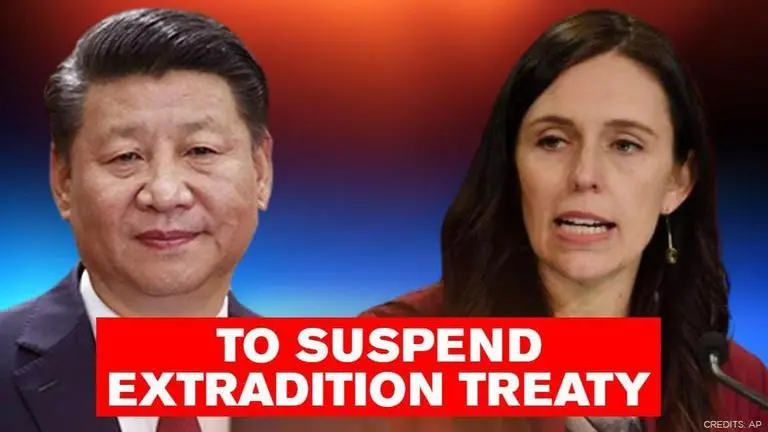Updated 3 August 2020 at 18:41 IST
China to suspend Hong Kong’s extradition agreement with New Zealand
China, on August 3, said that it would soon suspend its extradition treaty with New Zealand. Beijing’s move came in response to latter suspension with Hong Kong
- World News
- 2 min read

China, on August 3, said that it would soon suspend its extradition treaty with New Zealand. Beijing’s move came in response to the pacific nation’s suspension of its extradition agreement with Hong Kong. The Jacinda Ardern led administration took the step after the Chinese communist party imposed draconian national security law on Hong Kong.
As per the extradition treaty, Hong Kongers residing in New Zealand, if suspected of criminal activities, could be sent back to Hong Kong. In addition, they could also be subjected to face trial, legal procures or approval by ministers in the city. However, doubling down on the decision, the country’s foreign minister Winston Peters reasoned that his country no longer considered that “Hong Kong’s criminal justice system was independent of China”.
'It has eroded rule of law'
"China's passage of its new national security legislation has eroded rule-of-law principles, undermined the 'one country, two systems' framework that underpins Hong Kong’s unique status, and gone against commitments China made to the international community," Peters said at a press briefing.
New Zealand is not the first country to halt the extradition treaty. Fearing injustice from the newly imposed National Security Law, countries including UK, Australia, Germany and Canada have already suspended their treaties with Hong Kong. Meanwhile, Switzerland’s foreign minister raised concern over China moving away from the “path of openness” and called for the need for strengthening international law. Speaking to a weekly newspaper SonntagsBlick, Ignazio Cassis said that the economic liberalisation in China has not been matched by the political liberalisation.
Advertisement
Cassis asserted that Switzerland must defend its interests and values more robustly by strengthening international law and the multilateral system. China’s national security law has undermined the autonomy of Hong Kong and Switzerland fears for its companies who have invested in the Semi-autonomous region.
Advertisement
However, China has already implemented the draconian law and has started detaining pro-democracy activists under the garb of national security. The arbitrary la have targeted former pro-democracy demonstrators but also students, businesspersons and local residents.
Published By : Riya Baibhawi
Published On: 3 August 2020 at 18:41 IST
